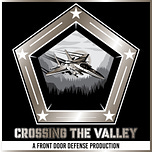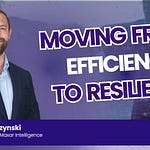Applied Intuition is Building the Software Foundation for Autonomous Defense Systems
About Jason Brown
After serving 26 years in the Air Force, where he commanded the 480th Intelligence Surveillance and Reconnaissance Wing, Jason became deeply involved in defense innovation initiatives. He founded the Air Force AI Accelerator at MIT and helped stand up the Joint AI Center before transitioning to the private sector.
Prior to joining Applied Intuition as General Manager of their defense business, Jason led Google's professional services business for defense—a notable position given Google's complicated history with defense technology following the Project Maven controversy. Throughout his career, Jason has consistently focused on bringing software and data capabilities to the warfighter, driven by early experiences watching his airmen create innovative Python scripts to solve intelligence challenges.
About Applied Intuition
Founded in 2017, Applied Intuition has become a market leader in autonomy software. While initially focused on the commercial automotive sector, providing software tools to major OEMs developing autonomous vehicles, the company has expanded into defense applications across multiple domains.
Applied Intuition's core technology includes advanced simulation environments that allow for the testing and development of autonomous systems without the expense and risk of physical testing alone. Their tools enable perception, planning, and control for autonomous systems—from individual vehicles to collaborative swarms.
The company recently acquired EpiSci, expanding their capabilities in aerial, maritime, and RF spectrum autonomy. Their technology now spans ground vehicles, maritime vessels, aerial systems, and the RF domain, with applications in both commercial and defense sectors.
In December 2022, Applied raised a $175 million Series F round at a $3.8 billion valuation. With approximately 1,000 employees, Applied Intuition claims to have more software engineers than any individual defense prime.
Key Takeaways
Software-Hardware Decoupling is Essential: DoD's current acquisition model of buying vertically integrated systems from primes is fundamentally at odds with how modern software-defined systems are developed. Defense companies must shift toward direct relationships with software product companies.
Simulation Accelerates Development by Orders of Magnitude: By investing in physics-based simulation environments, Applied can develop new products like Maritime Sim in just five weeks by leveraging their core technology stack—a pace impossible with traditional development methods.
The Power of Dual-Use Creates Technological Flywheel: Defense-specific development can enhance commercial products and vice versa, creating a virtuous cycle that strengthens both sectors while spreading development costs across a larger customer base.
Product Companies vs. Services Companies: Many defense programs claim to work with "commercial technology companies" but are actually working with engineering services firms that lack the product development expertise needed to scale software solutions.
Talent Gap in Software Acquisition Threatens Progress: The DoD needs to develop "tri-literate" leaders who understand acquisition, technology, and operations to effectively manage modern software-defined systems. Program offices that can competently manage relationships between hardware and software vendors are "few and far between" but essential for future capabilities.
Applied Intuition represents a new model of defense technology company—one that leverages commercial scale, expertise, and investment to deliver advanced capabilities to defense customers. Their approach of building a software foundation that works across domains and platforms, rather than focusing on building specific hardware systems, allows them to scale more rapidly and benefit from advances in both commercial and defense applications. This software-first approach is a compelling approach to autonomy, where the rate of change requires development that outpaces traditional approaches to acquisition.
For more…
…on Applied Intuition: Website | X | LinkedIn
…on Jason Brown: LinkedIn












Share this post